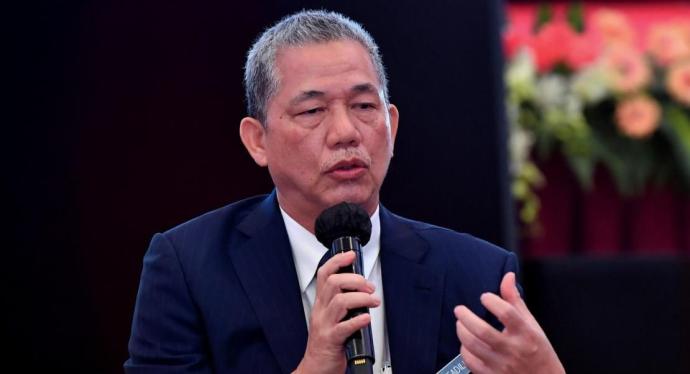KUALA LUMPUR, Sept 22 — Deputy Prime Minister and Plantation and Commodities Minister Datuk Seri Fadillah Yusof is scheduled to embark on an official visit to India from Sept 24 to 28, 2023.
In a statement today, the Ministry of Plantation and Commodities said the visit is to strengthen bilateral ties and explore opportunities for collaboration in the plantation and commodities sector between both nations.
The visit will also encompass a series of high-level meetings with key government officials and other relevant stakeholders, focusing on discussions regarding trade, agriculture, food security and safety.
“One of the highlights of the visit will be engagements with the Telangana state government and the Telangana oil palm farmers and smallholders.
“This engagement will discuss various collaboration and cooperation opportunities as well as market access for Malaysian palm oil in the region,” the ministry said.
Fadillah will be accompanied by a high-level delegation, including representatives from the Malaysian Palm Oil Board, Malaysian Palm Oil Council, Malaysian Rubber Board and Federal Land Development Authority (Felda).
Meanwhile, the ministry said during the visit, Fadillah is also scheduled to attend the 2nd Sustainable Vegetable Oil Conference, organised in collaboration with the Council of Palm Oil Producing Countries (CPOPC).
The conference will bring together key stakeholders in the vegetable oil industry to discuss global trends and sustainable practices.
India is the fourth-largest trading partner for Malaysia’s agri-commodity sector.
In 2022, exports of Malaysian agri-commodities to India accounted for 9.9 per cent of the total international market share, valued at RM20.49 billion, an increase of 0.4 per cent from RM20.4 billion in 2021.
The primary products exported to India were palm-based products (RM18.45 billion), followed by timber (RM1.01 billion) and rubber (RM943 million).
“India has also identified 0.6 million hectares, especially in Telangana, for oil palm cultivation, signalling strategic collaboration opportunities with Malaysia in research and development, planting management, and downstream product development.
“One of the mission’s key objectives is to secure recognition for the Malaysian Sustainable Palm Oil (MSPO) Certification Scheme within India’s palm oil industry,” said the ministry.
It noted that the MSPO 2.0 seamlessly aligns with global sustainability requirements, including United Nations Sustainable Development Goals (UNSDG), No Deforestation, Peat, and Exploitation (NDPE), and Environmental, Social, Governance (ESG) elements.
“Given India’s pivotal position as the largest consumer of palm oil, the adoption of MSPO 2.0 standards by India’s vegetable oil processing facilities will enhance recognition and promote adherence to these globally recognised sustainability standards.
“It will also bolster support for the India Palm Oil Sustainability Framework (IPOS),” it said.
















